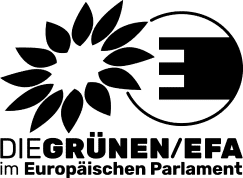Ambitious reform ideas for democracy vanish into minimal tweaks
Today, the European Commission agreed on its Democracy Package aiming to strengthen Europe’s democratic foundations and institutions. The package includes a reform of the statute of European political parties and political foundations (European Parties) (Regulation 1141/2014), a reform of rules for the way European citizens vote and stand for local and European elections (Council Directive 94/80/EC & Council Directive 93/109/EC) as well as a proposal to ensuring greater transparency in paid political advertising, among others.
Having consulted the draft reform proposals, Volt Europa is profoundly disappointed by the Commission’s lack of ambition for the future of our European democracy – a democracy that is in need of strengthening and revival. This is particularly true right now, as Europe is dealing with the aftermath of the pandemic, as well as challenges on a multitude of fronts, such as on migration, climate, external security threats and on digital competitiveness. Europe could be able to respond strongly, if its actions were based on strong democratic institutions with a strong democratic mandate. Unfortunately, the Commission’s Package fails to deliver this ambition. Instead, as a result of having only listened to established political forces and to prevailing conservative views from Member States, it only minimally tweaks outdated rules. Europe’s democracy should strive for a leap, and yet ends up taking a small step.
Volt Europa calls on the European Parliament and Council, as co-legislators, to go beyond the proposals of the Commission to:
-
truly reform European parties to strengthen political pluralism;
-
remove the requirement to win presence in the European or national parliaments before being recognised as a European party and replace it with proof of popular support, either members of signatures, in a few Member states;
-
amend the mechanism for attribution of European public funding to properly reward electoral performance, and reward European parties’ individual membership;
-
give mobile Union citizens a right to vote in regional and national elections; and to
-
ensure the visibility of European parties for citizens, including their link with national parties, and the full transparency of information concerning them.
In conjunction with making the EU elections truly European (Reform of the EU electoral act), co-legislators have to correct the Commission’s lack of ambition and build strong, integral European democratic institutions to the benefit of all citizens and ultimately to the future of our Union.
On behalf of Volt Europa,
Damian Boeselager (MEP)
Laurens Dassen (MP of Tweede Kamer)
Nilüfer Gündogan (MP of Tweede Kamer)
Marieke Koekkoek (MP of Tweede Kamer)
Francesca Romana D’Antuono (Co-President, Volt Europa)
Reinier van Lanschot (Co-President, Volt Europa)
Volt Europa is the first pan-European political party with tens of thousands of members spread over the entire European continent. Volt was founded in 2017 and has chapters with registered political parties in 16 countries. Volt believes that only a Europe that acts together can solve our shared challenges and aims to be active on all levels of government. Volt currently has more than 80 elected officials in Germany, Bulgaria, Portugal, the Netherlands, and Italy. This includes one MEP, and four MP’s in the national parliaments of the Netherlands and Bulgaria.

